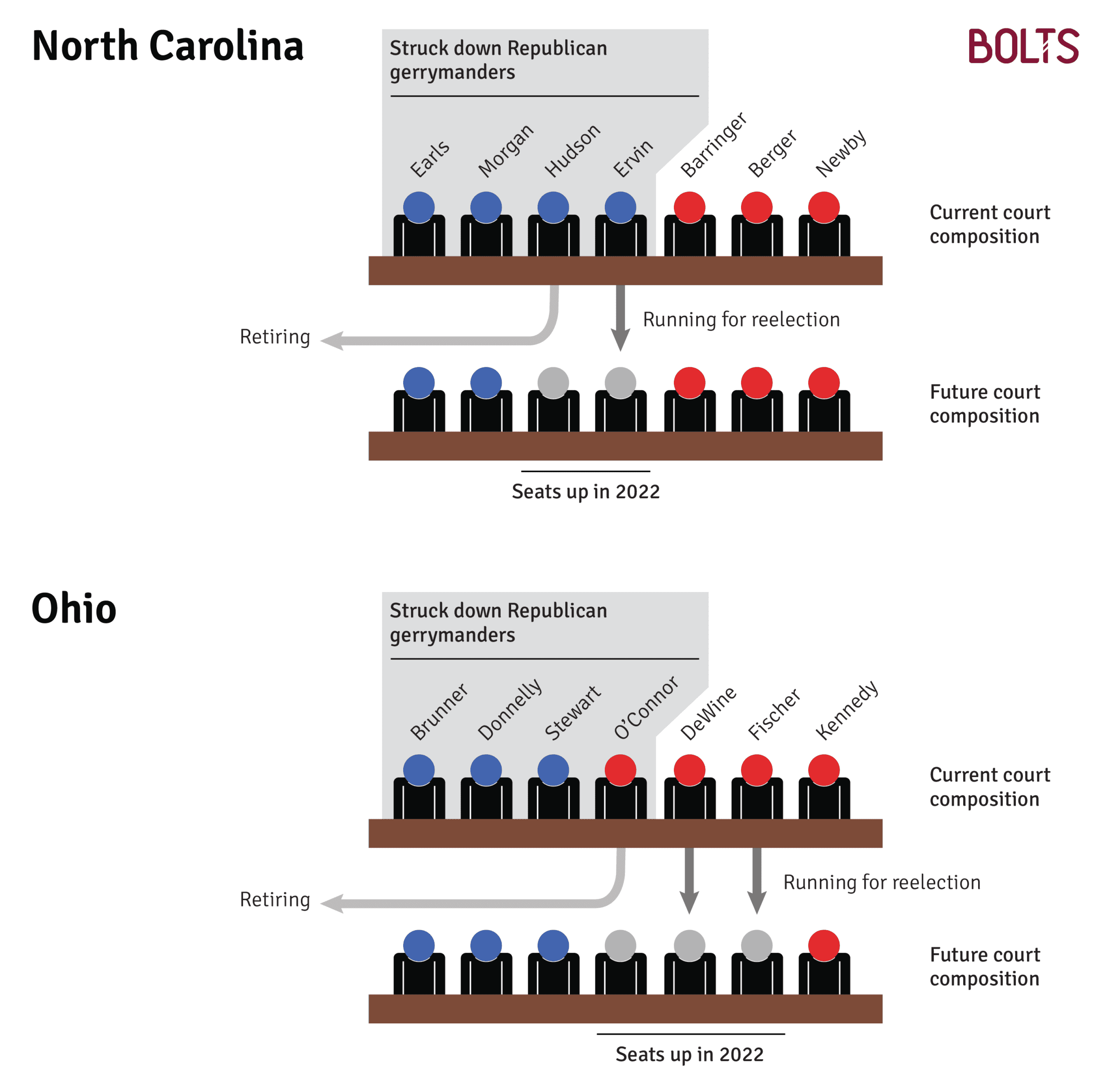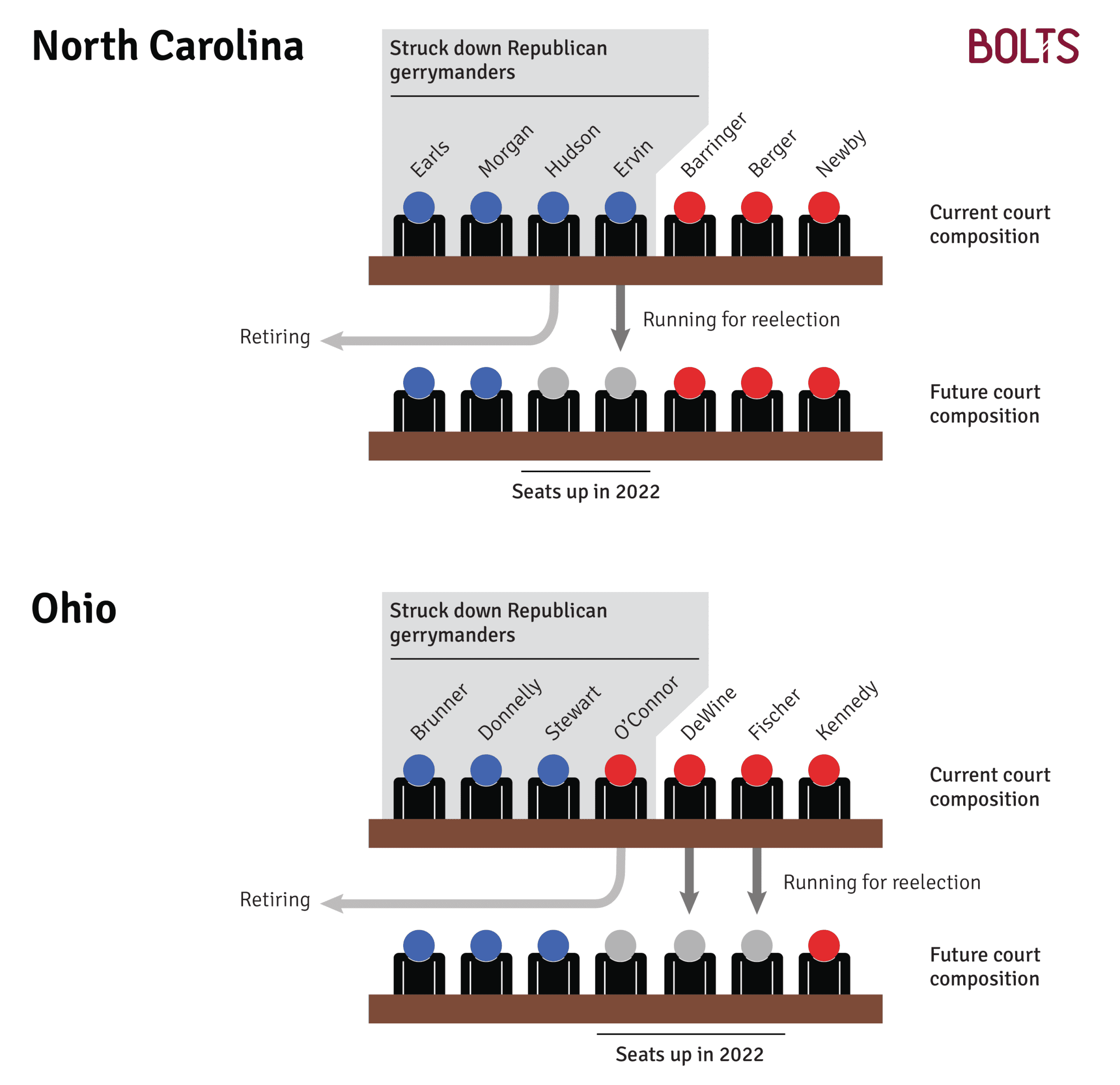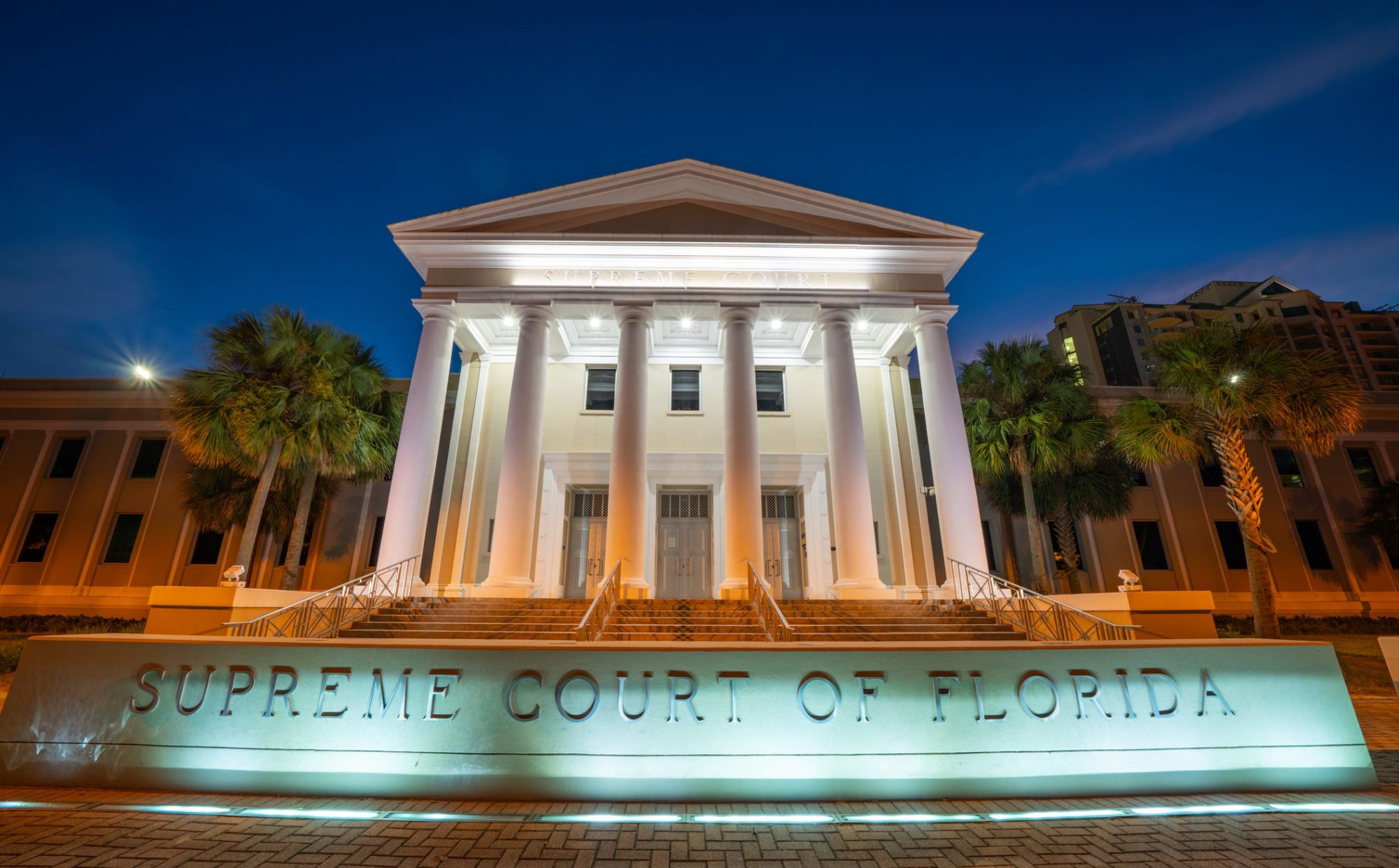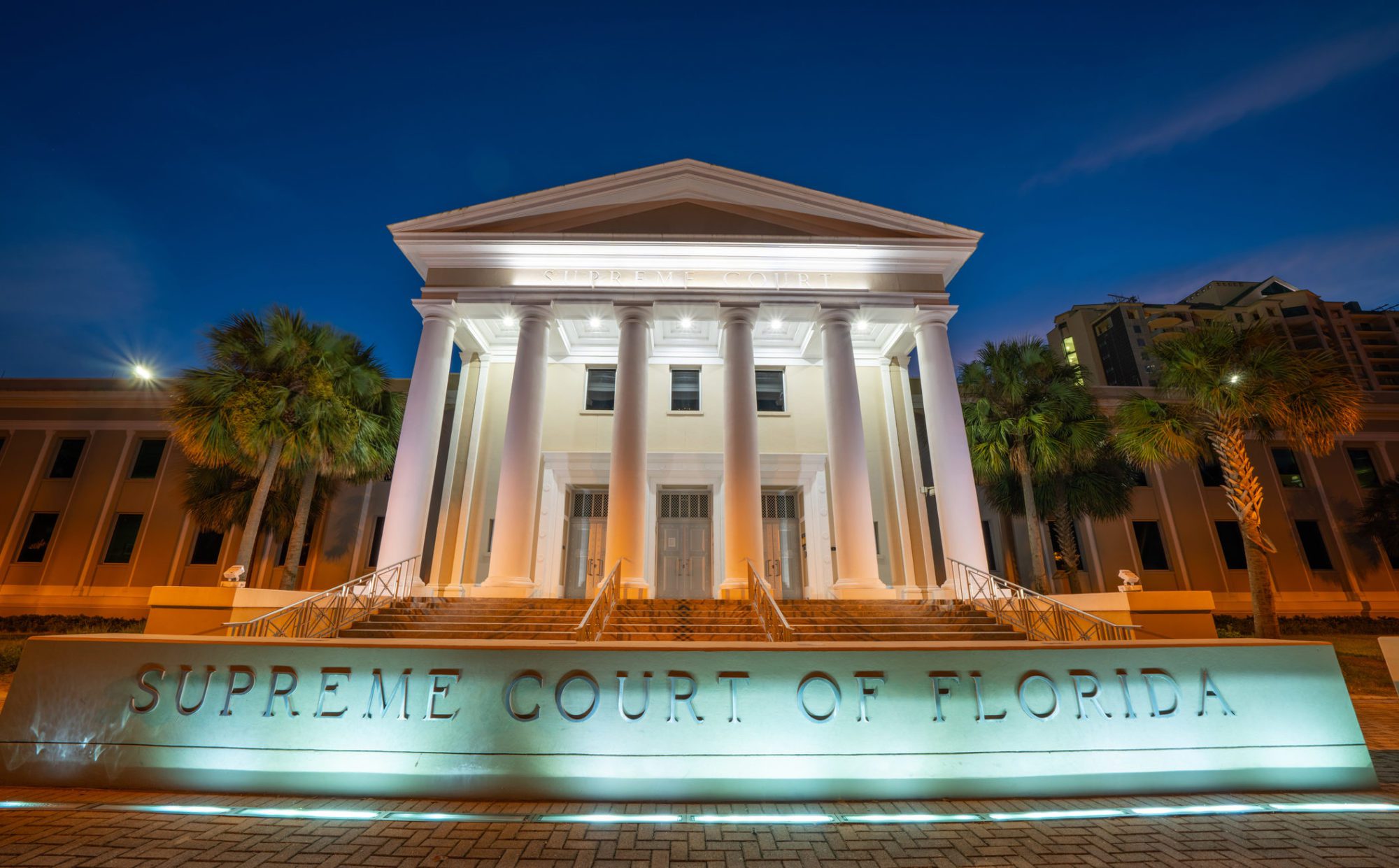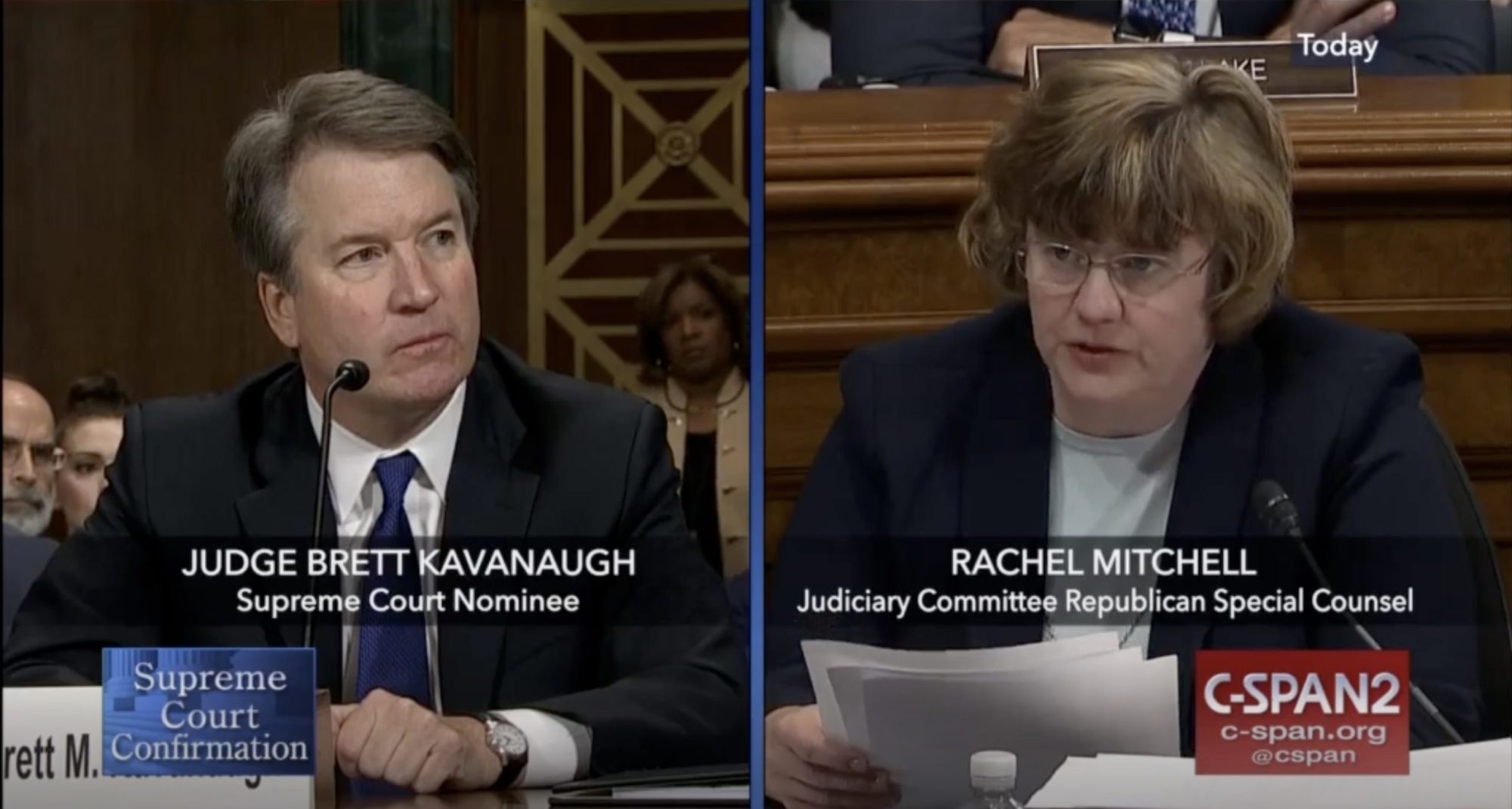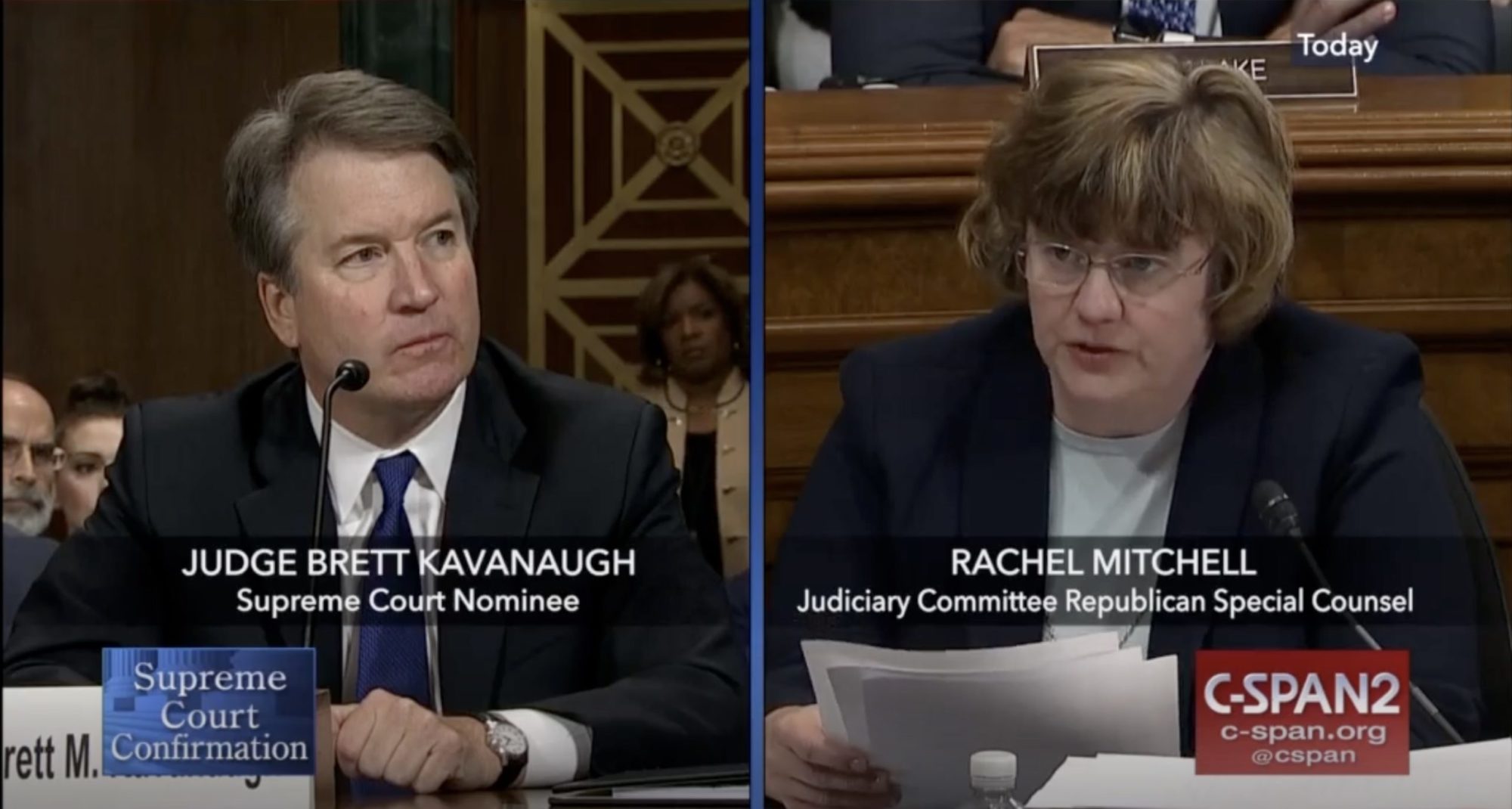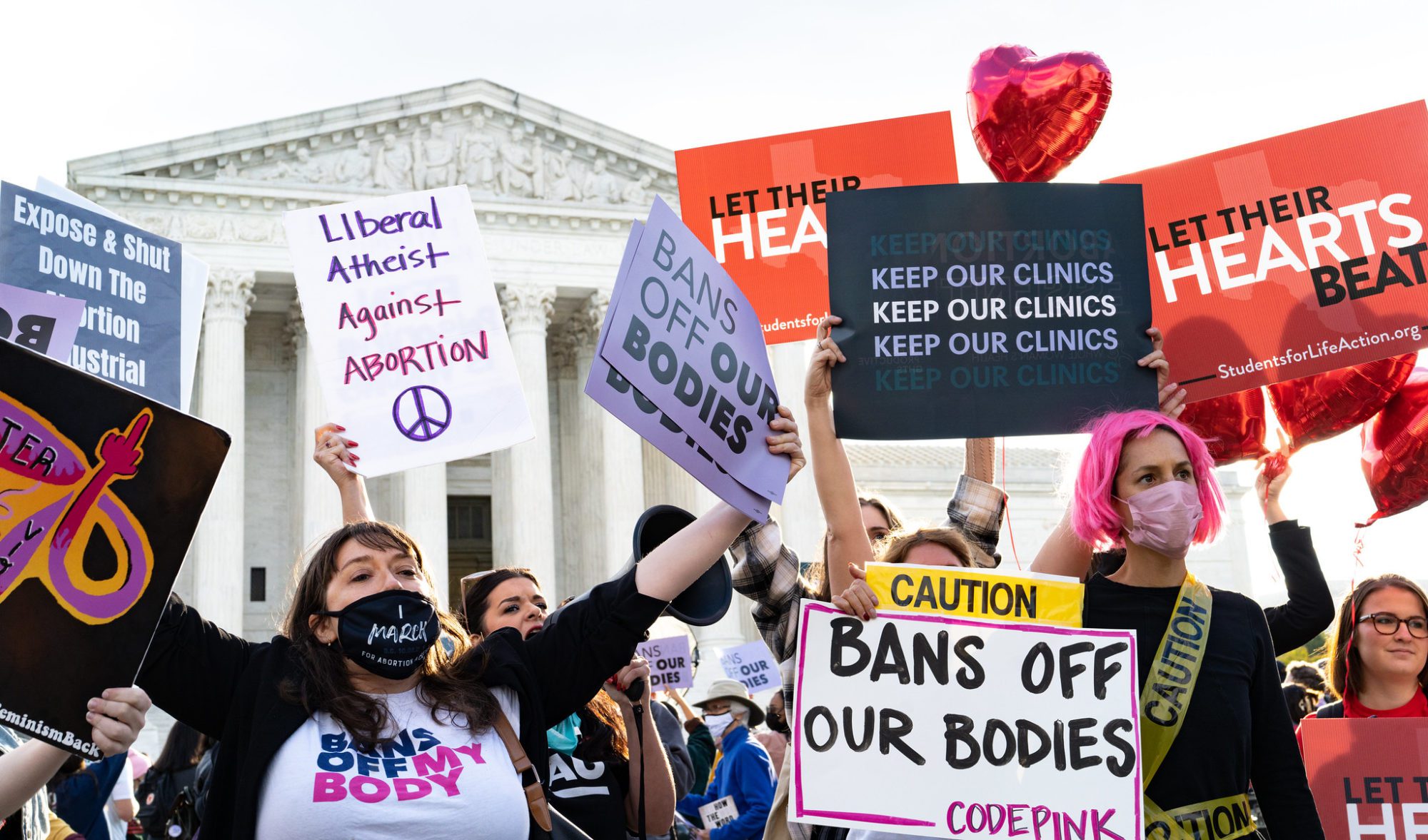Your Guide to Local Elections Where Abortion Is on the Line This Year
Thousands of officials will shape whether people can exercise their reproductive rights, and at what risk. We walk through what you should be watching, in nine questions.
Daniel Nichanian | July 14, 2022
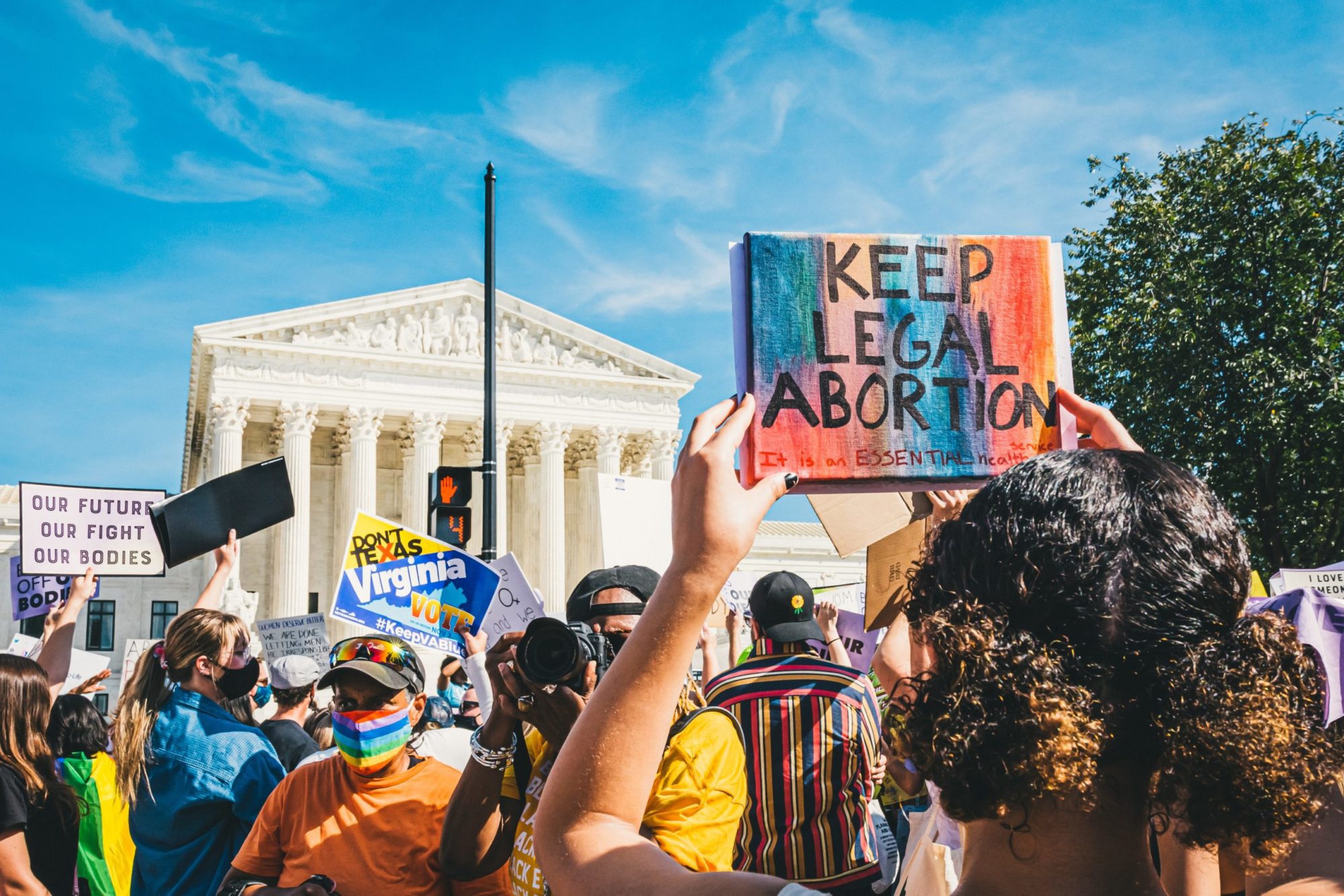
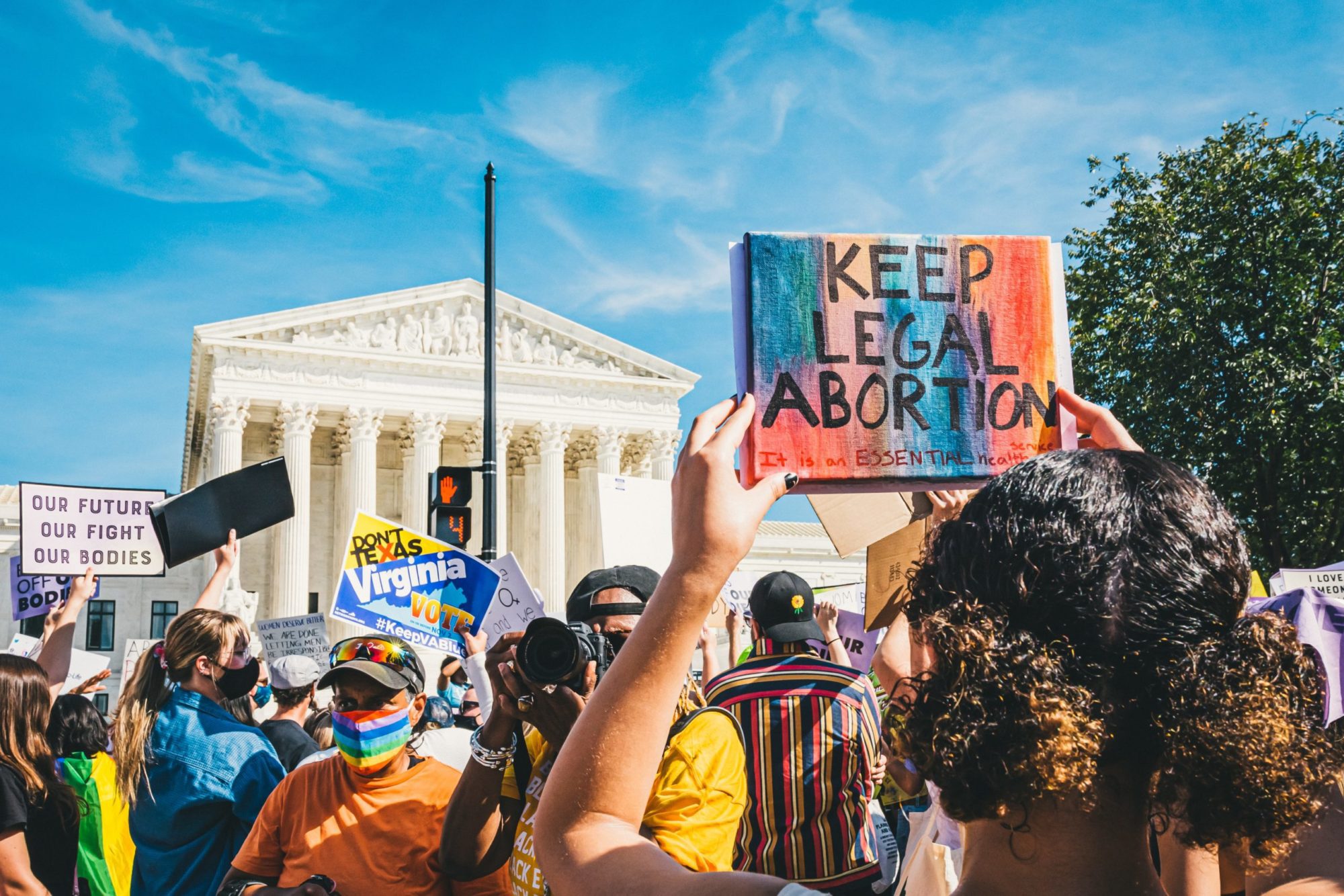
Ever since the U.S. Supreme Court overturned federal protections for abortion, exhortations to vote have been deafening. But those calls can feel trite when they’re severed from a precise accounting of why it matters who holds power, or from the recognition that the usual paths to electoral change are blocked in many states. A bewildering patchwork of public officials will now have a greater say on who can exercise their reproductive freedom, and at what risk—there are thousands of prosecutors, sheriffs, lawmakers, judges on the ballot just this fall—and for many citizens, the sheer scale of that mosaic can feel paralyzing.
This guide walks you through how concretely the 2022 midterms will shape abortion access.
We identify nine questions that touch on reproductive rights that state and local elections will decide, and the critical battles that will help answer them. The guide successively covers the meaning of state constitutions, the viability of new laws, and matters of law enforcement.
This guide is just one small slice. The elections mentioned, which cover 21 states, are by no means exhaustive: There are many other races playing out along similar lines for offices that will wield power over these issues for years to come. Still, we hope to give you a taste of the enormous range of powers held by state and local officials, and some of the ways that candidates on all sides are getting creative in how they’d use these in the wake of the Dobbs decision.
What are the candidates running for prosecutor saying in your county, if there’s an election? What about those running for sheriff and attorney general, governor and judge? The very need to ask these questions underscores the magnitude of the loss of federal protections, though local and state conflicts over the issue are by no means new; and that means many candidates already have long histories and some ideas when it comes to how they will approach abortion access.
1. Will voters affirm or reject state constitutional protections for abortion access?
Never have there been more referendums on abortion than this year. In six states, voters will weigh in directly on the issue, and more indirectly in a seventh, and the results could establish new bulwarks against the right’s efforts—or else open the door to new restrictions.
These stakes are clear in: Kansas’s August referendum…
In a landmark ruling that’s now styming Kansas conservatives, the Kansas Supreme Court ruled in 2019 that the state constitution’s equal protection clause protects access to abortion. But voters will soon decide whether to adopt a constitutional amendment, championed by Republicans, that would overturn that ruling and lift its protections; the election is scheduled for the lower-turnout August primary.
… and a likely Michigan referendum in November.
Pro-choice organizers in Michigan this week submitted more than 700,000 signatures on behalf of a constitutional amendment that would enshrine abortion rights, far more than the amount needed to get the measure on November’s ballot. If enough signatures are verified, voters will decide the fate of the state’s pre-Roe abortion ban. A progressive win here would be one of Election Night’s defining stories since it would protect access to abortion in a populous swing state, one where governance has long been out of reach for Democrats due to GOP gerrymanders. (That may change this year too.)
Also keep an eye on:
California and Vermont already enable access to abortions, but this fall they could become the first states to explicitly codify the right to abortion and contraception in their state constitutions.
Inversely, Kentucky conservatives are championing an amendment that would say that the state constitution provides no protections for abortion. Kentucky courts have not affirmed such a right, so this referendum would not overturn existing protections. Still, pro-choice groups have asked judges to do so; that door would all but close if the amendment passed. In Montana, voters may decide that a fetus born alive counts as a legal person. Finally, and more indirectly, Alaska holds a referendum, as it does every ten years, on whether to hold a constitutional convention that may change the state constitution; this matters because the Alaska Supreme Court has ruled that the state constitution’s privacy clause protects abortion access, and some conservatives who favor an abortion ban in Alaska hope for a ‘yes’ win to overturn that precedent.
2. Will new state judges affirm abortion rights, or strike down abortion protections?
State supreme courts are critical battlegrounds for reproductive rights. Nearly a dozen have established that their state constitutions recognize abortion rights. But that landscape is in flux as progressive and conservative litigators aim for new rulings. Upcoming judicial elections will tip the scales in many states; most states elect supreme court justices this year.
These stakes are clear in: Michigan’s supreme court elections…
Governor Gretchen Whitmer and pro-choice organizations want Michigan courts to strike down the state’s pre-Roe ban and find a right to access abortions in the state constitution; the state’s supreme court has yet to rule, and its makeup is a question mark. Democrats enjoy a 4-3 majority on the court, but one justice from each party (Richard Bernstein, a Democrat, and Brian Zahra, a Republican) is up for re-election. Republicans must carry both seats to flip the court.
… and a supreme court election in Montana.
Montana’s supreme court, unlike Michigan’s, has already affirmed that the state constitution protects abortion. But conservatives are asking the high court to overturn that ruling—at the same time as they’re working to push the bench further right. In a heated judicial election this fall, they are backing Jim Brown, a former counsel for the state’s Republican Party, over Justice Ingrid Gayle Gustafson, an incumbent who was appointed by a Democratic governor.
Also keep an eye on:
The partisan majority of supreme courts is on the line in three other states—Illinois, North Carolina, and Ohio—with a combined seven elections between them. These races may be decisive in future cases that touch on abortion rights. Of the three, North Carolina stands out: Abortion remains legal there but the situation could rapidly shift if the GOP makes further gains (see below), making it critical for Democrats to maintain their supreme court majority.
In Kentucky, pro-choice advocates hope to get courts to affirm a right to abortion in the state constitution but a fervently anti-abortion lawmaker is running for a seat on the supreme court. Similarly, conservatives hope to oust a moderate supreme court justice in Arkansas. Finally, eleven justices face retention elections (meaning a yes-or-no vote on whether they should stay in office) in Florida and Kansas, where state jurisprudence is especially fragile right now.
See also: Your State-By-State Guide to the 2022 Supreme Court Elections
3. Will states elect governors who will veto new abortion restrictions?
In some places where abortion remains legal, all that’s standing between virulently anti-abortion legislatures and new restrictions is the veto pen of a pro-choice governor. But for how long?
The stakes are clear in: Pennsylvania’s governor race.
Abortion rights have survived in this state despite Roe’s fall because the GOP legislature has to deal with the veto power of Governor Tom Wolf, a Democrat who supports abortion rights. But this status-quo is precarious: Wolf is term-limited and Republicans have nominated far-right lawmaker Doug Mastriano, who has long fought access to abortion, to replace him. The contrast is stark between Mastriano and the Democratic nominee, Attorney General Josh Shapiro, who has opposed new abortion restrictions for decades.
Also keep an eye on:
The Democratic governors of Kansas and Michigan, Laura Kelly and Whitmer, have each used their veto pen to block anti-abortion bills passed by GOP lawmakers. But that shield could soon disappear: Each is up for re-election this fall. That said, each state’s situation is complex: Michigan already has a ban on the books, but Governor Gretchen Whitmer wants state courts to strike it down; in Kansas, the right to an abortion is protected by a court ruling that voters may overturn this summer.
Inversely, Democrats could break the GOP’s control of Arizona and Iowa by flipping these state’s governorships. Arizona’s legal landscape on abortion is in flux, while Iowa’s high court overturned abortion protections in June, opening the door to new restrictions. In New York, where Republican Lee Zeldin would be the first governor opposed to abortion rights in at least 50 years, access would remain broadly protected but Zeldin has signaled he’ll look for ways to chip away.
4. Will states elect legislatures that want to restrict or protect abortion?
Governors are only one part of the puzzle when it comes to new laws; legislative control is just as fundamental. Simply put, will each chamber be favorable or hostile to abortion rights—and if they disagree with their governor, will lawmakers have the votes to override a veto?
These stakes are clear in: North Carolina’s legislative elections.
North Carolina Governor Roy Cooper, a Democrat who supports abortion rights, is sure to be in office through 2024. At the moment Republicans, who control the legislature but lack veto-proof majorities, cannot get restrictions past him. Will that change this fall? If November is very rough for Democrats, the GOP could make enough gains to sideline Cooper.
Also keep an eye on:
Republicans have failed to override Kansas Governor Laura Kelly’s veto of anti-abortion bills, but even if Kelly wins a second term, they may have an easier time next year if they grow their legislative majorities. Republicans also have outside shots at seizing control of Nevada, New Mexico, and Minnesota state governments if they manage to flip both the governorship and legislature. In the first two states, abortion is currently legal but not protected by state courts; in the third, a court ruling protects abortion but the GOP may still push for some new restrictions.
Inversely, legislative gains by Democrats could protect abortion in Pennsylvania and Michigan, where the party has a stronger shot than it has in decades thanks to fairer maps. Finally, keep an eye on Democratic primaries in Maryland and Rhode Island, where progressive groups like Pro-Choice Maryland are targeting Democrats who oppose abortion. This can matter even where Democrats have supermajorities (as in Maryland) if they need to override a Republican governor’s veto.
5. Will cities and counties empower law enforcement to enforce bans or investigate pregnancy outcomes?
Besides changing state constitutions and laws, proponents of reproductive rights face a vast host of challenges having to do with how to mitigate the harms of existing bans, and that includes the threat of arrest, prosecution, and incarceration. First up are the sheriffs and police chiefs in charge of arresting and investigating people. A few police chiefs and sheriffs in blue-leaning areas like New Orleans have said they would not enforce abortion bans. How might this play out in the midterms? Police chiefs are typically appointed by city governments (which often have more leeway to direct police practices than they utilize), while sheriffs are directly elected.
The stakes are clear in: Wisconsin’s sheriff elections.
The sheriff of Dane County (Madison) put the question of abortion enforcement at the center of Wisconsin’s sheriff elections when he said he would not enforce the state’s 1849 ban on abortion. “Our sheriff’s office has a very strict budget with regards to our time and where we decide to put things,” Kalvin Barrett, a Democrat, told Bolts. He is now running for re-election against Republican Anthony Hamilton, who did not respond to Bolts‘s questions about his position on the issue. Bolts reached out to other candidates running for sheriff in the state. In Milwaukee, the state’s most populous county, all three candidates echoed Barrett’s stance and said they would not use the department’s resources to investigate abortion cases. (All are Democrats.)
In Eau Claire County, where three candidates are running, only Democrat Kevin Otto told Bolts that he would follow Barrett’s footsteps. “I would not enforce the laws on abortion because of the lack of resources and interference into a person’s health matters,” he said. Otto’s Democratic opponent David Riewestahl said it was too early to definitively answer the question, while Republican candidate Don Henning replied he would “investigate complaints as they arise.”
Also keep an eye on:
Many cities in states with severe abortion restrictions (or that risk having them soon) will elect their municipal governments this year, and the role that their local police departments play in enforcing abortion bans should be central issues. Those cities include Little Rock, Arkansas, Tallahassee, Florida, and Lexington and Louisville, Kentucky.
6. Will counties elect prosecutors who have pledged not to charge abortion cases?
Prosecutors have historically enjoyed vast discretion over what cases to charge, which has made them a highly visible line of defense against the criminal consequences of bans. Already, dozens of prosecutors have said they won’t press charges in cases that involve abortions. As a result, reproductive rights are a major fault line in a host of upcoming elections that pit candidates who say they would enforce restrictions—and candidates who say they’ll decline cases.
These issues were already present before Dobbs, as zealous prosecutors investigated pregnancy outcomes, as Bolts reported in June. Just last month, a conservative California district attorney lost his re-election bid after prosecuting two women who had experienced stillbirths.
The stakes are clear in: Maricopa County’s prosecutor race (Phoenix)…
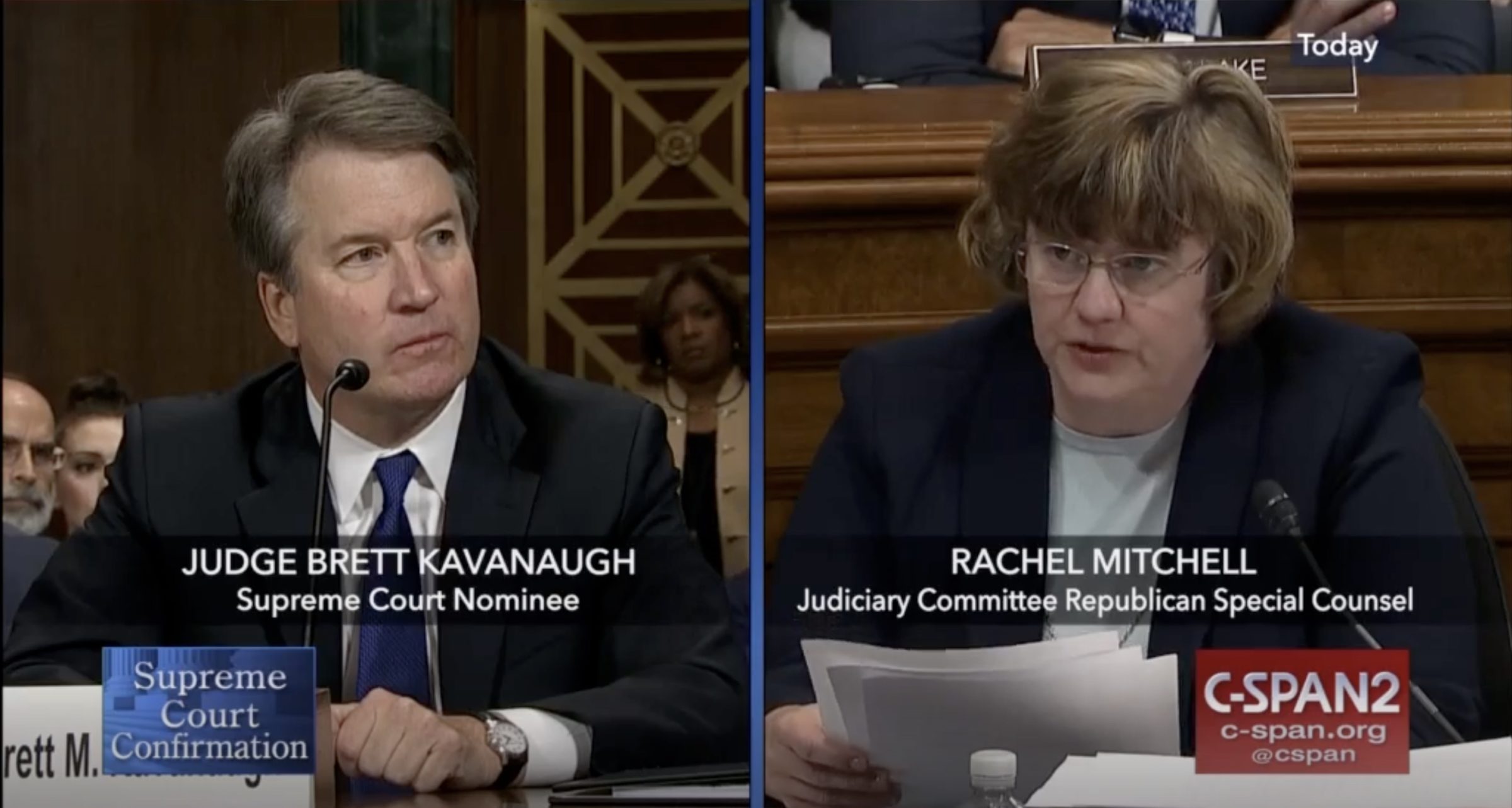

Four years after questioning Christine Blasey Ford during Brett Kavanaugh’s Supreme Court confirmation hearings, Rachel Mitchell is now the chief prosecutor of Maricopa County in Arizona, home to 4.5 million people. If courts greenlight the state’s new restrictions on abortion, Mitchell has said she would enforce them. But Maricopa is holding a special election this year, which adds further uncertainty since presumptive Democratic Julie Gunnigle has ruled out pressing criminal charges, as Bolts reported in May in partnership with The Appeal. “As Maricopa County attorney I will never prosecute a patient, a provider, or a family for choosing to have an abortion or any other reproductive decision,” Gunnigle said. “Not now, not ever.”
… and in the prosecutor’s race in Florida’s Pasco-Pinellas (St. Petersburg) counties…
Florida’s Pasco and Pinellas counties, which share a state attorney, have not had a contested election for prosecutor in 30 years despite being home to a combined 1.5 million residents. And what a time to have one: Their judicial district hosts a special election, much like Maricopa, and the two contenders are at odds on whether to enforce the state’s existing ban on abortions after 15-weeks. (Florida laws may soon get harsher still.) Democrat Allison Miller, a local public defender, says she will not prosecute people providing or obtaining an abortion, unlike Republican incumbent Bruce Bartlett, appointed to the job by Governor Ron DeSantis.
… and in the Texas DA elections.
A group of Texas DAs issued a joint statement this spring vowing to not prosecute abortion. And though just a portion of Texas counties vote for a DA this year, November’s elections will shape whether that group grows or shrinks. Democratic DAs who signed that statement are running for re-election in Bexar and Dallas counties. And in two populous counties that have trended bluer, Democrats are hoping to flip the DA offices. “I will not allow the persecution of our neighbors by cynical politicians bent on establishing a theocracy in Texas,” Kelly Higgins, the Democratic nominee in Hays County, wrote on Facebook after the Dobbs decision. In Tarrant County, where a staunchly punitive incumbent is retiring and former President Trump has gotten involved on behalf of the GOP nominee, Democratic nominee Tiffany Burks told Bolts she “does not have any plan to prosecute women or anyone who facilitates an abortion, doctors or whomever.”
Importantly, the discretion of Texas DAs may be strongly tested by conservatives going forward, as lawmakers and the attorney general are working out ways to kneecap these local officials.
Also keep a eye on:
Iowa’s most populous county (Polk, home to Des Moines) is sure to have a new prosecutor come next year, and Democratic nominee Kimberly Graham told Bolts in June she would not prosecute cases linked to abortion; the state supreme court in Iowa struck down abortion protections in June, plunging reproductive rights in the state in greater vulnerability. In Shelby County (Memphis), one of the few staunchly blue counties in Tennessee, Republican DA Amy Weirich has pointedly rejected the idea of issuing a blanket policy on not enforcing abortion ban; Steve Mulroy, her Democratic opponent in the August election, has said prosecutions “should be extremely low priorities” and he has assailed Weirich for lobbying for a harsher law.
See also: Which Counties Elect Their Prosecutors in 2022?
7. Will states elect attorneys general who want to interfere with local prosecutors?
Prosecutors are imperfect bulwarks since any policy they set is at the mercy of the next election, but also because conservatives have mechanisms at their disposal to supersede DAs—and they are plotting to set up more. Chief among them: Attorneys general. In some states, they have the authority to bring criminal charges on their own, and if not to bury providers under civil lawsuits.
But this authority can cut both ways. Pro-choice candidates are signaling how they too would try to use the powers of this office for the opposite end, namely to stop the prosecution of abortions. When the conservative DA of California’s Kings County prosecuted two women over stillbirths, for instance, Attorney General Roy Bonta blew up the cases through media appearances and convinced a judge to reopen a case.
The stakes are clear in: Michigan’s attorney general election…
While a series of Michigan prosecutors have ruled out prosecuting abortion, they face a major obstacle: The Michigan attorney general’s latitude to step in is greater than in many other states. Democratic incumbent Dana Nessel has ruled out doing so, but she’s up for re-election and her likely general election opponent, Matt DePerno, has indicated he is in favor of enforcing bans.
… and the Arizona attorney general election.
Kris Mayes, Democrats’ likely nominee for Arizona attorney general, wants to go a step further: She is not just ruling out prosecuting people herself, but she also proposes stopping others from doing so. She says she would use her office’s supervisory authority over all local prosecutors, an authority that is broader in Arizona than elsewhere, to direct all of Arizona’s county attorneys to not enforce bans on abortion. But the Republican candidates in this race largely oppose abortion rights; were they to win, they may flex their power and try to supercede Democratic prosecutors who are refusing to bring criminal charges. Either way, legal questions about the extent of the attorney general’s authority will remain, likely leading to more clashes.
Also keep an eye on:
Texas Attorney General Ken Paxton, a Republican, is among the country’s most militant officials in restricting abortion and has vowed to help local prosecutors enforce the state’s harsh laws; he may also bring ruinous civil lawsuits against providers. His opponent Rochelle Garza could not be more different. She has worked on defending access to abortion as an attorney and says she would set up a reproductive rights unit in the office if she wins, which is always a tough proposition for a Texas Democrat—though Paxton’s own criminal indictments may give her an additional opening. In Georgia and Ohio, two states that are looking to implement severe restrictions, Democratic nominees Jen Jordan and Jeffrey Crossman are also speaking on the issue; Jordan says she would issue legal opinions to undercut local prosecutors who are bringing criminal charges, for instance, and Crossman refuses to defend the law in court. Their Republican opponents, Georgia Attorney General Chris Carr and Ohio Attorney General Dave Yost (who responded skeptically to a 10 year-old rape victim who sought an abortion), are currently defending abortion restrictions in court.
8. Will states elect governors who promise clemency?
In states that have already banned or severely restricted abortion, a pro-choice governor, on their own, won’t shield people from arrest and prosecution. But some governors may at least have the authority—by themselves or through appointees to a board, depending on state rules—to issue clemencies for people who are convicted of violating criminal codes.
The stakes are clear in: Wisconsin’s governor race.
Democratic Governor Tony Evers has said he would grant clemency to anyone convicted under the state’s 1847 ban on abortions. But Evers is up for re-election this fall, and his GOP opponents have made it clear they support enforcing the ban.
Also keep an eye on:
Wisconsin governors have broader discretion than most to grant clemency; many other states dilute that power considerably.
Still, at least one other state is electing a governor who will have somewhat direct authority to issue pardons: Ohio. Republican Governor Mike DeWine faces Nan Whaley, Dayton’s Democratic mayor, who is an abortion rights supporter and says she would veto new restrictions. She did not respond to a request for comment on clemency powers. The issue has also come up in Arizona, where the governor shares power with a clemency board. Democrat Marco Lopez has said he would support pardoning people convicted over abortions; Katie Hobbs, the other Democrat in the race, supports abortion rights but did not reply to a request for comment on clemency.
Kentucky’s Democratic governor, who has broad authority over pardons and is only up for re-election in 2023, has not said how he would use his own clemency powers.
9. Will new judges bless gerrymanders that would lock in anti-abortion majorities?
Before overturning Roe v. Wade, this conservative U.S. Supreme Court also refused to rein in partisan gerrymandering. And there’s a direct connection to abortion rights: The GOP in many states has drawn maps that lock in legislative control, making it extraordinarily difficult for pro-choice majorities to emerge even if most residents vote for them. A few state courts have guarded against this dynamic—but their judgements are now on the line.
The stakes are clear in: North Carolina and Ohio’s supreme court elections.
These two states’ supreme courts have each struck down GOP gerrymanders, though Ohio lawmakers have for now circumvented those rulings. But new court majorities may emerge in November—five justices will be elected across the two states—and re-open the floodgates of gerrymandering, as Bolts reported in March. Friendlier courts could enable the GOP to draw maps that last the full decade and enshrine anti-abortion majorities. (Note that, while North Carolina is sure to have new congressional maps by 2024, it will be tricky for Republicans to justify drawing new legislative maps before the end of the decade due to legal idiosyncrasies, but they may try if they think they’ve secured a high court would rubber stamp their maneuver.)
And there will be no rest for the weary. Virginia Governor Glenn Younkin indicated that he may push for severe restrictions if the legislature were favorable to it, which has already marked the state’s elections for the state Assembly and Senate in the fall of 2023 as critical for abortion.



